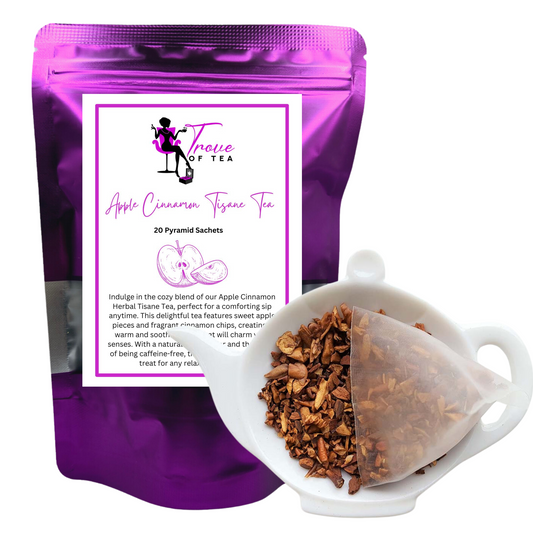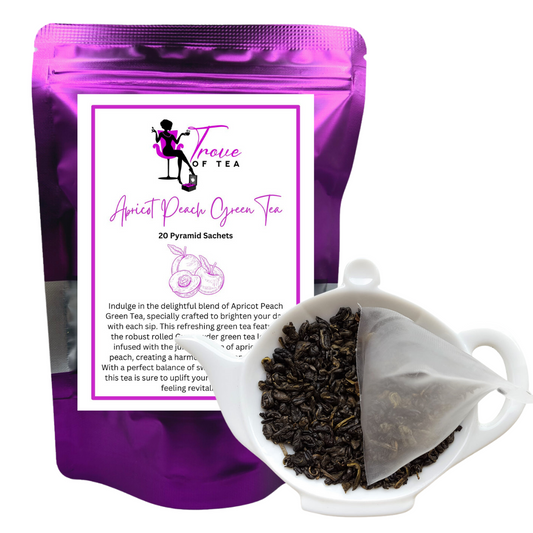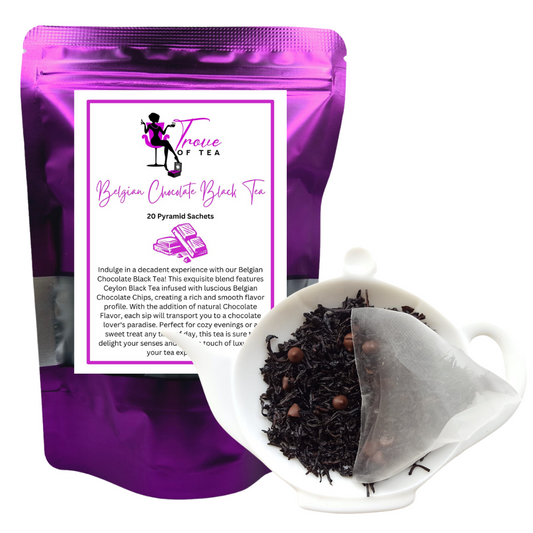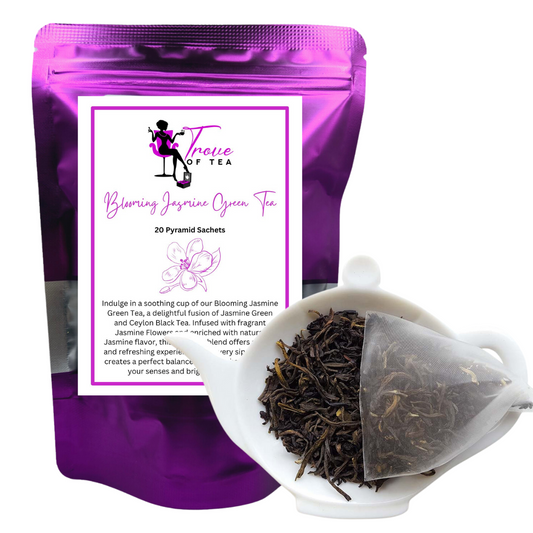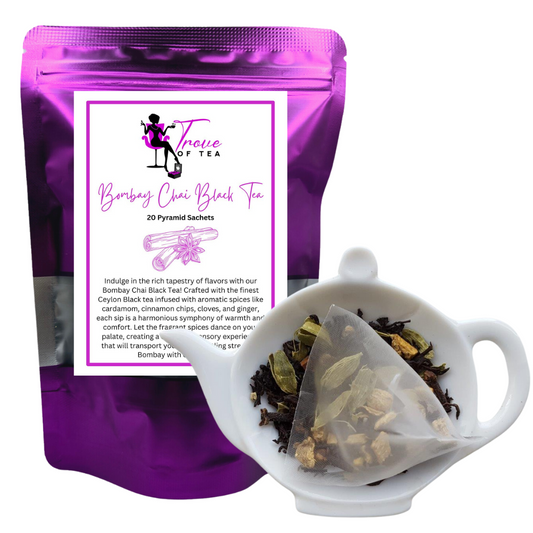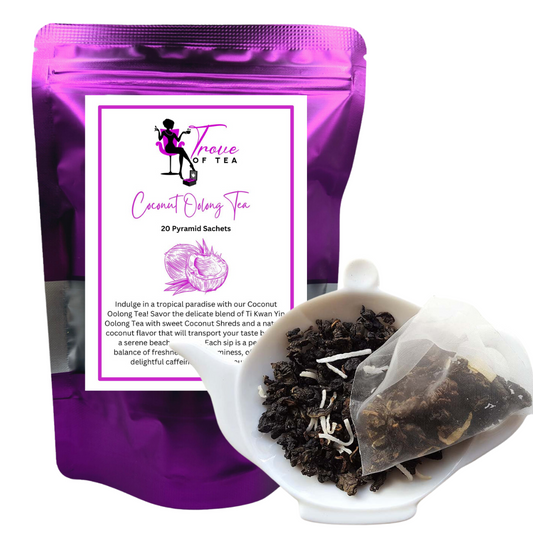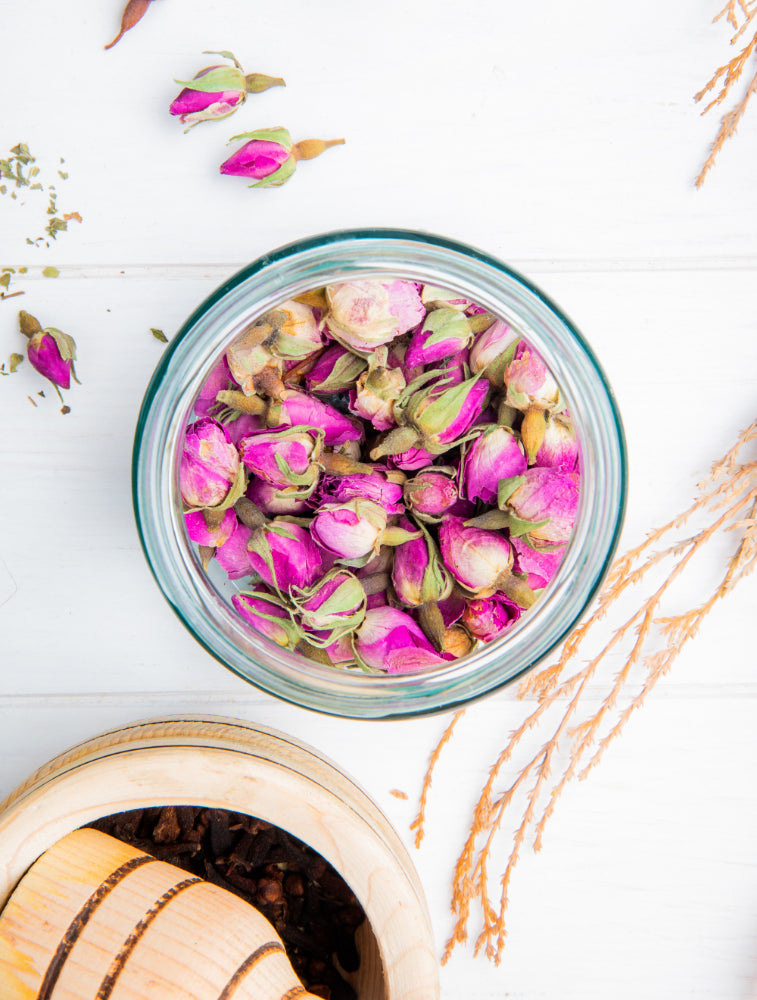
How to Store Your Tea Properly for Maximum Freshness and Flavor
Trove of Tea ShopShare
Tea is not only a beverage; it’s an experience, rich in flavor and aroma. Whether you’re enjoying a soothing herbal blend or a robust black tea, how you store your tea can greatly impact its freshness and taste. Proper storage is essential to preserving the delicate qualities of tea, ensuring that each cup you brew is as flavorful and aromatic as it was intended to be. But what exactly does proper tea storage look like?
In this article, we will explore the factors that affect tea freshness, the best storage practices, and some common mistakes to avoid. By following these tips, you can ensure that your tea remains fresh, flavorful, and aromatic for as long as possible.
Why Proper Tea Storage Matters
Tea is a natural product, and like any organic material, it is sensitive to environmental factors such as light, heat, moisture, and air. If not stored properly, these elements can degrade the tea leaves, causing them to lose their flavor and aroma over time. When tea is exposed to air, it oxidizes, leading to a stale or flat taste. Similarly, moisture can cause the tea to absorb unwanted odors or even spoil.
When stored correctly, tea can retain its optimal flavor for months, sometimes even years, depending on the type of tea. Proper storage protects the integrity of the tea leaves, allowing you to enjoy the full range of flavors and health benefits that tea offers.
Key Factors that Impact Tea Freshness
Before we dive into the best storage practices, let’s first look at the key factors that affect tea’s freshness:
-
Air Exposure: Tea leaves, especially green and white teas, are sensitive to oxidation. Exposure to air causes them to lose their freshness and flavor over time. This is why airtight containers are essential for proper tea storage.
-
Moisture: Tea leaves are hygroscopic, meaning they easily absorb moisture from the air. Even a small amount of humidity can cause tea to lose its crispness and develop off-flavors. Moisture can also lead to mold growth, which will ruin your tea entirely.
-
Light: UV light can degrade the quality of tea leaves, causing them to lose their vibrant color and flavor. Direct sunlight is especially harmful, which is why it’s crucial to store tea in a dark, cool place.
-
Heat: Heat accelerates the degradation of tea leaves, making them go stale more quickly. Teas stored near a heat source or in a warm environment will lose their flavor and aroma faster.
-
Odors: Tea leaves are highly absorbent, and they can easily take on the smells of their surroundings. Storing tea near strong-smelling foods like spices, coffee, or garlic can cause it to absorb those odors, affecting its taste.
How to Store Tea Properly: Best Practices
Now that we’ve identified the factors that can impact tea freshness, let’s explore the best practices for storing your tea to ensure maximum flavor and longevity.
1. Use Airtight Containers
The most important rule of tea storage is to keep your tea in an airtight container. Airtight containers prevent air from entering, which helps preserve the flavor and aroma of the tea leaves. Ideally, the container should be opaque to block out light, and made from non-reactive materials such as tin, stainless steel, or dark-colored glass.
Avoid using plastic containers, as they can sometimes retain odors that may transfer to the tea. If you must use glass containers, make sure they are stored in a dark cabinet away from light.
2. Store in a Cool, Dark Place
Temperature and light are critical when it comes to maintaining the freshness of tea. Store your tea in a cool, dark place, such as a pantry or cupboard. Avoid storing tea near heat sources like stoves, ovens, or windows where sunlight and heat can accelerate the degradation of the tea leaves.
Tea should be stored at a consistent temperature, ideally below 75°F (24°C). Excessive heat can cause the tea to go stale much more quickly.
3. Keep Tea Away from Strong Odors
As mentioned earlier, tea leaves are highly absorbent and can take on the smells of their surroundings. To avoid flavor contamination, store your tea away from strong-smelling foods or household items such as spices, coffee, or cleaning products. If possible, keep your tea in a separate cabinet dedicated to tea storage.
For additional protection, some tea lovers opt to store their tea in double containers, where the tea is placed in a smaller, airtight container, which is then stored inside a larger, odor-resistant container. This extra layer of protection helps ensure that your tea remains free of unwanted smells.
4. Avoid Moisture Exposure
Moisture is one of the biggest enemies of tea freshness. To keep your tea leaves dry, avoid storing them in areas with high humidity, such as near a sink or in the refrigerator. Even the smallest amount of moisture can cause tea to lose its flavor and texture or, in some cases, lead to mold growth.
If you live in a humid climate, consider using moisture-absorbing packets (such as silica gel) in your tea storage containers to keep the environment dry. However, be careful not to place these packets directly on the tea leaves.
5. Don’t Store Tea in the Fridge or Freezer
While it may seem like a good idea to store tea in the refrigerator or freezer to keep it fresh, this is actually a mistake. Tea leaves are sensitive to temperature fluctuations and humidity, which are common in both the fridge and freezer. Every time you open the fridge or freezer, the temperature and humidity levels change, which can cause the tea leaves to degrade over time.
Additionally, refrigerators and freezers often contain strong odors from other foods, which can be absorbed by the tea. It’s best to store tea at room temperature in a dry, dark place instead.
Different Teas, Different Needs: How to Store Various Types of Tea
Not all teas are created equal, and different types of tea have different storage requirements. Let’s take a look at how to store some of the most common varieties:
Green and White Tea
Green and white teas are the most delicate and require the most care when storing. These teas are highly sensitive to light, heat, and air, so it’s essential to store them in airtight, opaque containers in a cool, dark place. They have a shorter shelf life than other teas and are best consumed within six months to a year.
Black Tea
Black tea is more oxidized than green or white tea, which makes it more robust and less sensitive to air and light. However, it still benefits from being stored in airtight containers and kept away from moisture and odors. Black tea can stay fresh for up to two years if stored properly.
Oolong Tea
Oolong tea falls between green and black tea in terms of oxidation and sensitivity. Like green and white teas, oolong is best stored in an airtight container and kept in a cool, dark place. Depending on its oxidation level, oolong tea can remain fresh for one to two years.
Herbal Tea
Herbal teas, which are made from herbs, flowers, and spices rather than tea leaves, should be stored just as carefully as traditional teas. Because they are composed of natural ingredients, herbal teas are sensitive to light, heat, and moisture. Store them in airtight containers and keep them away from direct sunlight and strong odors. Herbal teas can typically stay fresh for up to a year.
How Long Does Tea Stay Fresh?
When stored properly, most teas will maintain their flavor and freshness for a significant amount of time. However, the shelf life of tea depends on the type of tea and how it’s stored. As a general guideline:
- Green and white teas: Best consumed within 6 months to 1 year.
- Black teas: Can last up to 2 years.
- Oolong teas: Lasts between 1 to 2 years, depending on oxidation levels.
- Herbal teas: Typically stay fresh for up to 1 year.
Always check the aroma and taste of your tea before brewing. If it smells stale or lacks flavor, it may have lost its freshness, and it’s time to replace it.
Conclusion: Maximizing the Freshness and Flavor of Your Tea
In conclusion, tea storage may seem like a small detail, but it has a significant impact on the quality of your tea. By storing your tea in airtight containers, keeping it away from light, heat, moisture, and strong odors, and understanding the specific needs of each tea type, you can preserve its freshness and flavor for as long as possible.
Proper storage allows you to enjoy the full sensory experience that tea offers, from its vibrant aroma to its complex flavors. Whether you’re a casual tea drinker or a dedicated connoisseur, taking the time to store your tea properly ensures that each cup you brew is fresh, flavorful, and full of the characteristics that make tea such a beloved beverage.




